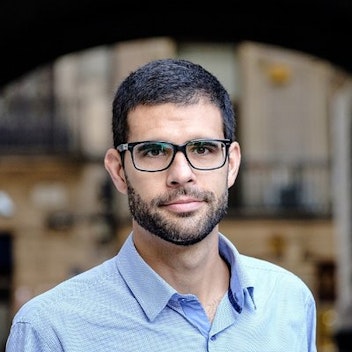Il Gattopardo in Catalonia? Not really

The results of parliamentary elections in Catalonia on 14th February show that territorial politics have come to stay. Although lot has happened since 2017’s events, the political conflict remains alive and kicking. Despite the COVID-19 health and social crisis, the recent elections were still marked by issues of self-determination and independence. After a quick glimpse at the electoral results, one is tempted to pronounce Tancredi’s famous sentence from Il Gattopardo “Everything must change for everything to remain the same”. The Catalan Parliament remains practically divided in two blocks of parties, one for and the other against independence, with a pro-secessionist and self-determination majority. However, a closer look at the parliamentary composition shows several new elements. In fact, this election might truly be a critical juncture for Catalan politics.
In 2017, following a high-tension October characterised by the “wildcat” referendum and the symbolic declaration of independence of the Catalan Parliament, the Spanish Government removed and took over control of the Catalan executive, calling for elections in Catalonia while autonomous-community powers were suspended, and Catalan leaders jailed or exiled. In that election, the secessionist parties; JxC, ERC and CUP, secured the absolute majority of members of the parliament (70 out of 135) and 47.49% of the popular vote. The spectacular turnout of almost 80% reflected a highly mobilised and polarised society around the issue of self-determination and secession with two antagonistic parties leading each of the political blocks. JxC with 34 MPs, the party of former President Puigdemont, obtained the first position among secessionists while the most voted party was Ciudadanos with 36 MPs - a Spanish nationalist party radically positioned against Catalan self-determination and in favour of a more centralised territorial model for Spain. Ciudadanos remained the opposition leader when in June 2018 a new coalition government of secessionist parties was formed.
More than three years later, the recent electoral results have once again opened the door for the formation of a pro-independence coalition government. Pro-independence parties secured a total of 74 MPs and reached the symbolic threshold of 50%+1 votes (50.08% in effect). But apart from these similarities, many other aspects look quite different to 2017´s. First of all, ERC, a centre-left republican party, is now the leading pro-independence party albeit by a very narrow vote margin and just one MP more with 33 in contrast to the second most-voted pro-independence party - JxC with its 32 MPs. The ERC leader, Mr. Pere Aragonès, (now) has many opportunities to be elected as the prime minister of Catalonia by the Catalan Parliament. This would be a historical event as the ERC has not occupied the presidency since the 2nd Republic of the 1930s. Most importantly, the ERC has a clear gradualist and moderate approach to independence compared to JxC and its 32 MPs. Since the ERC members of the Spanish parliament gave support to Mr. Pedro Sánchez in the investiture vote in 2019, the party has committed to solutions utilising both dialogue and negotiation for the political conflict on independence instead of 2017’s unilateral one. Secondly, the Catalan Socialist party (PSC) won the most votes and became the winner of the elections and is now leading the “pro-unity” block. This is also a relevant new aspect: The Socialist party adamantly opposes independence but is in office in the central government and shares (from a pro-unity perspective) the idea of offering a negotiated solution to the conflict through a “negotiation table”.
Therefore, the results in both blocks (pro-independence and pro-unity) point to a less polarised Parliament, at least on the issue of self-determination. Nonetheless, this “moderation” of Catalan politics must be nuanced by some complementary aspects that do not actually predict any calm for the legislative term. Indeed, the times when Catalan politics were known as the “Catalan oasis” now seem a fairy-tale. On the one hand, the radical Spanish nationalist and far-right party Vox (11 MPs) has entered the Catalan parliament, as in other regional parliaments, thanks to the incredible political collapse of Ciudadanos. On the other, the extremely low turnout of this election at 53.54%, not only reflects a less mobilised society, but is also a clear symptom of “pandemic fatigue” and the social unrest that will certainly be heard on the streets very soon.
In a nutshell, since the 14th February election the Catalan Parliament has not only been leaning to the left - the ERC and PSC are the two most voted parties with 33 MPs each, but is also displaying a more moderated perspective regarding the territorial conflict. The results could now pave the way for a negotiated solution, something that the bulk of pro-independence forces, that hold an absolute majority of the Catalan Parliament since 2012, have been looking for during the last decade.
The Socialist candidate, former Health Minister Salvador Illa, campaigned in his now famous “turning the page” slogan. This is certainly a promising horizon for Catalonia and the electoral results seem to encourage this option. But starting a new page of Catalan history will require political compromises, a political response to a repeatedly majoritarian demand of self-determination and a U-turn in the policy of “law & order” keeping political leaders in either jail or exile, and a complete review of the several judicial procedures still open against Catalan politicians, civil servants and even scholars. The Catalans seem in fact to have voted against Tancredi’s words: they want changes and to move forward from the cul-de-sac that has until now, been making consensual politics difficult to achieve.

Tags
Citation
This content is licensed under a Creative Commons Attribution 4.0 International license except for third-party materials or where otherwise noted.





